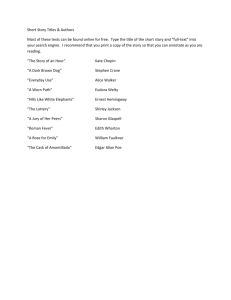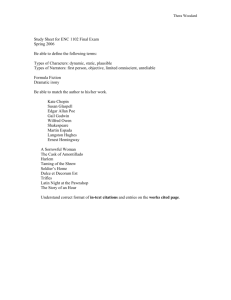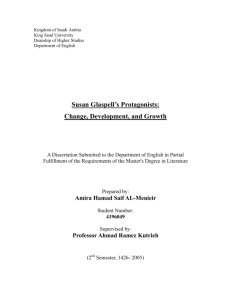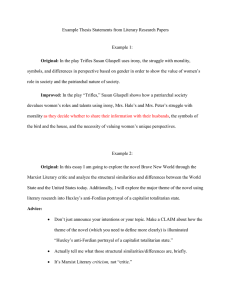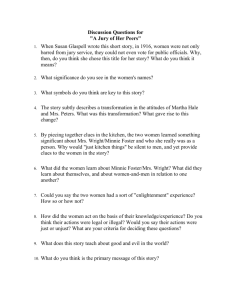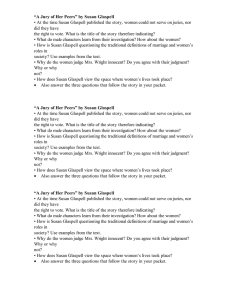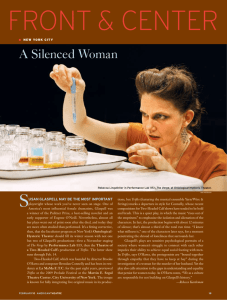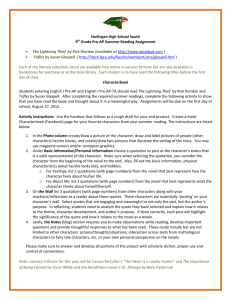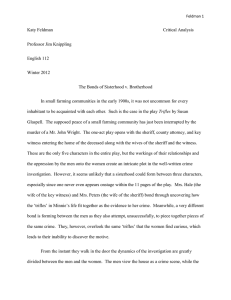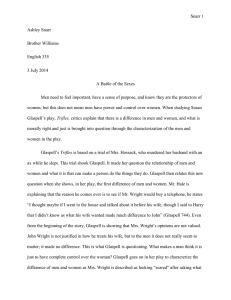Trifles
advertisement
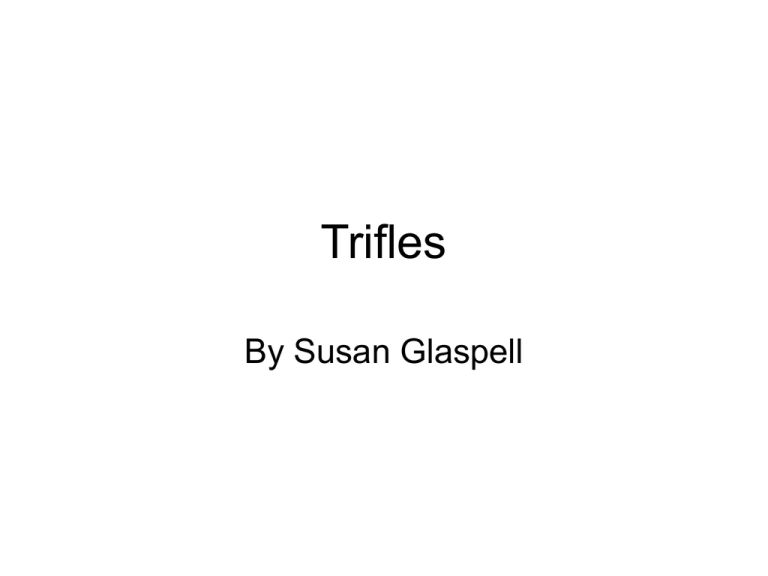
Trifles By Susan Glaspell Susan Glaspell • Susan Glaspell: Pulitzer prize winner, co-founder of the drama company Provincetown Players, noncommercial, experimental theater group, journalist (this one act play is based on an actual trial that Glaspell covered as a reporter); in the 1916 production of the play she performed Mrs. Hale. Physical setting • desolated village in Iowa, abandoned farmhouse, very cold (read the text), must be winter; from Mrs. Hale: not cheerful, down in a hollow, and “you don’t see the road…a lonesome place and always was” Social context • social context: latter half of the 19th century American women at the turn of the century • Domestic life: men’s possession, not allowed to make a contract, or sue or be sued • Political rights: Suffrage: until 1920; Women could not sit on juries • Social domain: limited job opportunities Plot • a whodunit type of murder mystery. • Instead of focusing on the men and their quest to solve the case, Glaspell concentrates on the women in the kitchen. • Rising action—small discoveries: nervous sewing patterns, broken door on the bird cage, a dead canary • Climax—discovery of the dead bird • Falling action—feeling closer to the suspect • Resolution—decision to conceal the evidence Trifle images served as symbols • Rocking chair • Cherry preserves • Broken jars: women’s hard labor and confinement, shattered mental state • Quilt: messy stitching—symbol of emotional turmoil; help to show that Mrs. Wright knew how to tie a knot; incomplete quilt—symbol of uncertainty of heroine’s fate; women’s knitting— symbol of endeavor to comprehend a woman’s life; Mrs. Peters’ reply, “We think she was going to – knot it.” Symbolic images • canary • Birdcage • Dirty kitchen Men vs. Women • Men—ridicule, presumption of guilt, draw conclusions quickly, speed • Women—defensiveness based on compassion, reasoning by what they know and her surroundings, more intuitive, empathy Major Themes • Women and men comparison --Social status --way of thinking --moral judgement --language style • Women’s subversion of power
